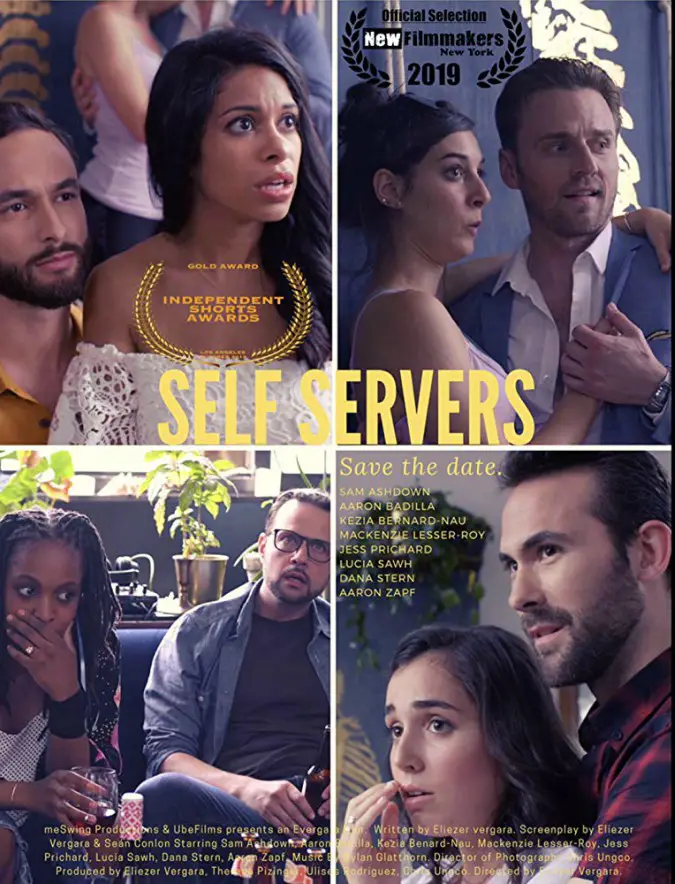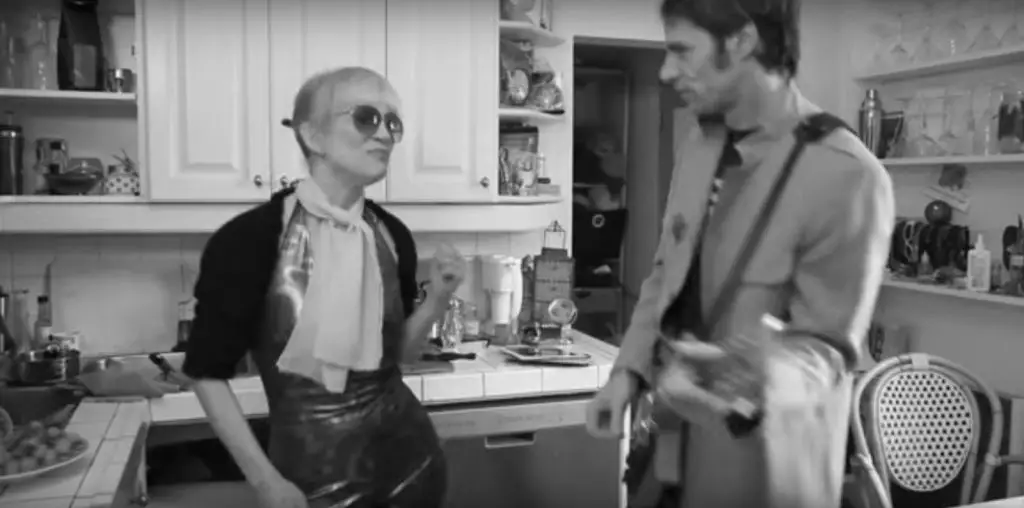
Everyone at the dinner party tries not to laugh at Macy as she chases a delusional dream. Mackenzie Lesser-Roy plays the part of Macy with a bovine and garrulous quality; her words are consciously stretched out, and her intent is comically aimless. Aaron Zapf assumes the role of Macy’s boyfriend with more level-headedness, though he still deftly exhibits a few moments where he makes a strange comment and fazes the entire room.
Will and Lauren are the last to enter the party, and they carry a strong aura of pomposity. First seen conversing about their fitness preferences (Lauren is a Yoga girl, while Will loves his weights), they disrupt the flow of the party with their fitness and money talk. Sam Ashdown’s wealth parading Will and Dana Stern’s health-conscious Lauren amplify the elitist perspective. Ashdown’s confident voice and laid-back demeanor visibly pique the group, more specifically, Max and Kim. Stern’s rowdy repartee with Ashdown also serves as their characters’ way of being cute and playful, though it mostly just irritates the others.
All of the characters are embodying caricatures of millennials. In return, Eliezer Vergara exhumes the hilarity originating from the swirling pot of lifestyles, beliefs, and aspirations influencing the modern-day mentality of millennials. Jackson and Emma’s efforts to have a neat and clean party is no match against egos in need of nurturing, and inner tumult in need of declaration.
Each couple suffers from insecurities and plights, some more overt than others. This diverse array of characters may come together as friends, but they aren’t walking out of this unscathed. A sudden mismatch of principles will not always innocuously kindle civil disputes. To add to that, most friendship bonds will become broken if contrasting politics, ideologies, or religions enter the conversation.

“…an unsparing satire on millennials.”
Transpiring in Jackson and Emma’s cozy and decorated home, the awkwardness is turned up to 10. There’s nowhere to escape when a bombshell abruptly drops. Dylan Glatthorn’s kooky score and Chris Ungco’s sedate cinematography goes with the intended quirkiness and tension of this gathering, as the blunders and comments pile up to an immeasurable amount of discomfort. Regrettably, the ending is sudden and partial, with minimal clues to suggest that this would be the ideal place to conclude things.
In Self Servers, Eliezer Vergara provides an unsparing satire on millennials. We all have secrets, desires, and ways of doing things, and sometimes that leads to resentment. It’s one of life’s innate gifts, or perhaps it is more of a curse: to live a life without anyone really knowing you unless you let them in. In the course of this 22-minute short film, writer-director Vergara is keen on exposing a single revelation about those in our lives. That sometimes, we don’t know our friends, let alone ourselves.

"…the ending is sudden and partial, with minimal clues..."


